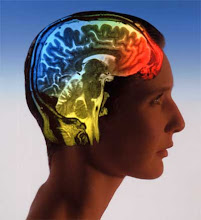(From BPS digest, see http://www.researchdigest.org.uk/blog for more info)
It's not just the amount of sleep we get that is so important for learning, but the quality of that sleep. That's according to a new study that made precise use of beeping noises to disrupt deep "slow-wave" sleep among 13 elderly participants (average age 60 years), without actually waking them up.
The beeping was used in such a way that although the participants' were deprived of deep sleep, their total sleep time and number of sleep stages were unaffected (compared with a comparison night of undisturbed sleep). After a night of either shallow or deep sleep, the participants had their brains scanned while they viewed 50 images of houses and landscapes. The next day they had to say which of 100 images were repeated from the daybefore.
The participants' performance was superior when a night with deep sleep had preceded the learning of the images, compared with a night of shallow sleep, even though total sleep time was the same in each case (36.6images correctly identified versus 31.4 images, on average). Moreover, the brain scans showed that during the initial viewing of images, activity in the hippocampus, the seat of human memory, was reduced aftershallow versus deep sleep, but only for those images that were subsequently recalled....
Van Der Werf et al (2009). Sleep benefits subsequent hippocampal functioning. NatureNeuroscience. In press.
Subscribe to:
Post Comments (Atom)

1 comment:
I get fortnightly emails from the British Psychology Society with a summary of recent research studies in Psychology, in a summary form like this example. Visit their website www.bps.org.uk if you'd like to sign up. I've decided to post a few of the more interesting and/or relevant ones onto this blog.
Post a Comment